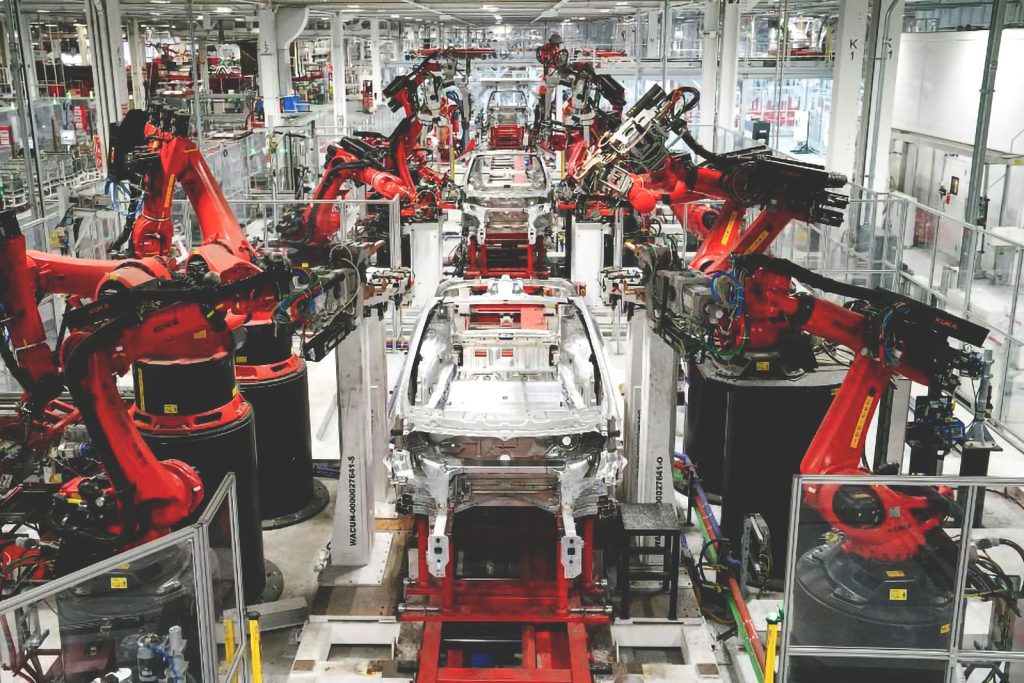Article by Nicholas Wyman, CEO, IWSI America.
If there’s anything workforce experts agree on, it’s that the number of jobs that can be done more effectively by robots than humans is growing at an exponential rate.
Exponential. It’s hard to fathom the meaning of that. We’re in new territory – the Fourth Industrial Revolution. And it’s happening right now.
We’ve already seen jobs lost to automation – mostly those that involve repetitive, low-skilled, physical tasks (jobs in the auto industry and the textile industry being prime examples). And we know industrial automation will continue.

What many people might not know is that machines are already capable of doing more than just repetitive work – they can take on cognitive tasks as well. In fact, McKinsey estimates that 60% of all occupations have some portion, 30% or more, that can be automated with existing technology.
These findings echo a 2013 Oxford University study that found 47% of all jobs are vulnerable to automation within the next decade. Machine learning algorithms and vastly expanded sensor capability mean that computers can take in a constant stream of data, analyze that data for patterns and recommend solutions to problems humans can’t even see.
Which means jobs once thought to be exclusively human are now within the computer’s domain. In the medical field, computers can sort through vast data sets to analyze medical input and specify treatment options unique to each patient. Computers can also do legal work, ingesting and analyzing hundreds of thousands of legal documents for pre-trial research. It’s very likely that automation will encroach even into fields where human judgment holds sway, such as finance and software engineering.
These scenarios are not in the future; they are happening now. The world of work is changing fast. Some companies have taken steps to skill up for the future of work. JPMorgan Chase recently announced that it is investing $350 million over the next five years to train workers for jobs of the future. “Too many people are stuck in low-skill jobs that have no future and too many businesses cannot find the skilled workers they need,” said the company’s Chairman and CEO Jamie Dimon. He went on to say, “The new world of work is about skills, not necessarily degrees.”
It’s not just up to employers
Workers will have to change as well. We’ll need different skills and a different mindset to take on the age of automation age workplace. Some are obvious. We need people to run, manage, service and work with robots and other forms of automation. We need people to write the software. We need people to manage their fellow workers and workplace systems.
Other skills are slightly less obvious. According to a 2016 World Economic Forum (WEF) survey of Chief Human Resource Officers (CHROs) from the world’s largest employers, a key workplace skill is data analysis. Another key skill is specialized sales – people who can understand and market the many new technologies.
We’ll also need cross-functional and interdisciplinary skills – skills we can take with us across sectors and that help us work with people in other industries. One of the major trends identified by the WEF is the growing importance of social skills. They note that skills such as “persuasion, emotional intelligence and teaching others—will be in higher demand across industries than narrow technical skills, such as programming or equipment operation and control.”
Respondents to a recent Pew Research Centre survey of “technologists, scholars, practitioners, strategic thinkers and education leaders” agree. Many of them cite the need for social skills and a willingness to learn all throughout life – to take on challenges and see them through, to know how to think critically and solve problems. Understanding other cultures and societies in an increasingly global world is also a key skill cited in both the Pew and WEF surveys.
Pew respondent Pamela Rutledge, director of the Media Psychology Research Center, says, “the core assumptions driving educational content are not adapting as fast as the world is changing. Traditional models train people to equate what they do with who they are (i.e., what do you want to be when you grow up) rather than to acquire critical thinking and flexible skills and attitudes that fit a rapidly changing world.”
Of course, we don’t know exactly what kind of jobs will be available in the age of automation. Many of today’s most in-demand jobs did not exist ten, or even five, years ago. As the WEF notes, “by one popular estimate, 65% of children entering primary school today will ultimately end up working in completely new job types that don’t yet exist.”
How do we prepare ourselves for jobs that don’t yet exist? It’s going to require a different way of looking at education, training and workforce strategies.
In short, we’re in a brand new world. But we have a pretty good idea of how people can thrive in this world. They need to acquire the new skills that will help them work with and alongside computers. And they need to be agile in retraining as the job market shifts and new jobs emerge. On the institutional side, business, education and political leaders need to understand what’s coming and set out policies that will help people get the skills they need to succeed. It’s particularly urgent to open up education and training opportunities to a much greater share of the population.
The age of automation is here and there’s no turning back. The future of work holds many opportunities for those willing to learn and adapt.




 President Trump called for
President Trump called for  training model. Since their establishment, they have placed nearly 15,000 apprentices in stable careers throughout Australia. WPC Group is part of the IWSI Group.
training model. Since their establishment, they have placed nearly 15,000 apprentices in stable careers throughout Australia. WPC Group is part of the IWSI Group.